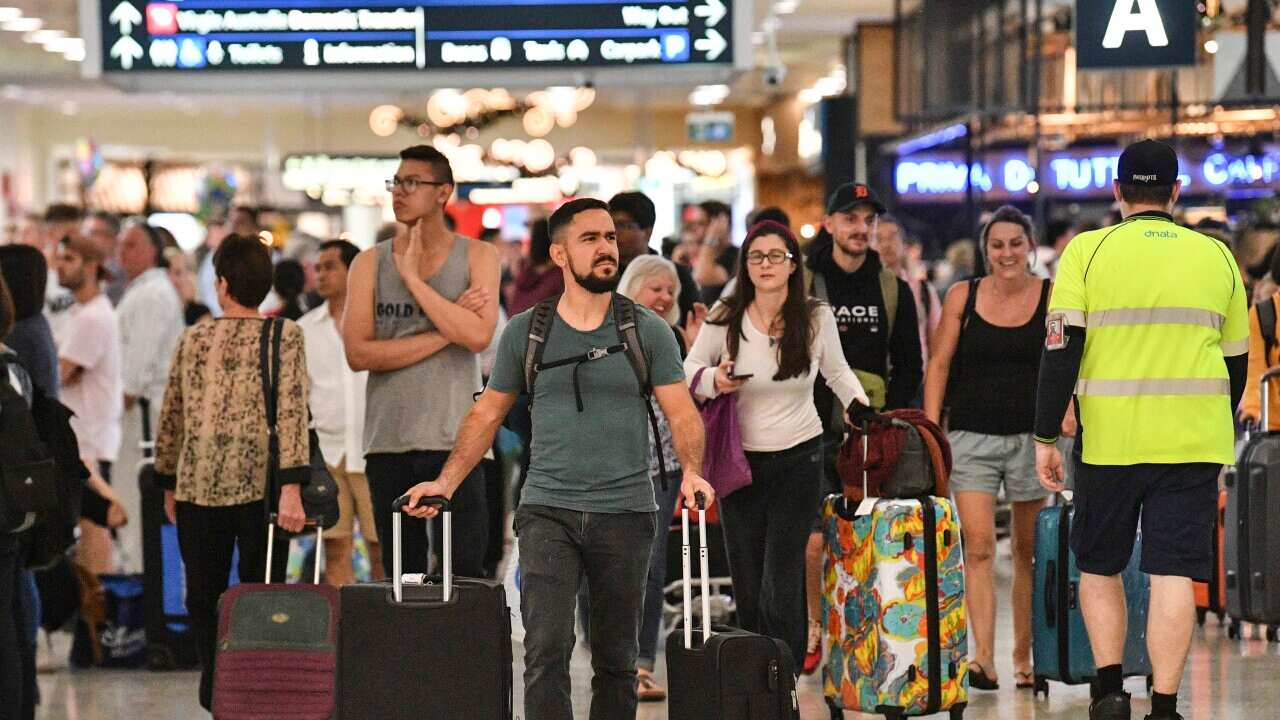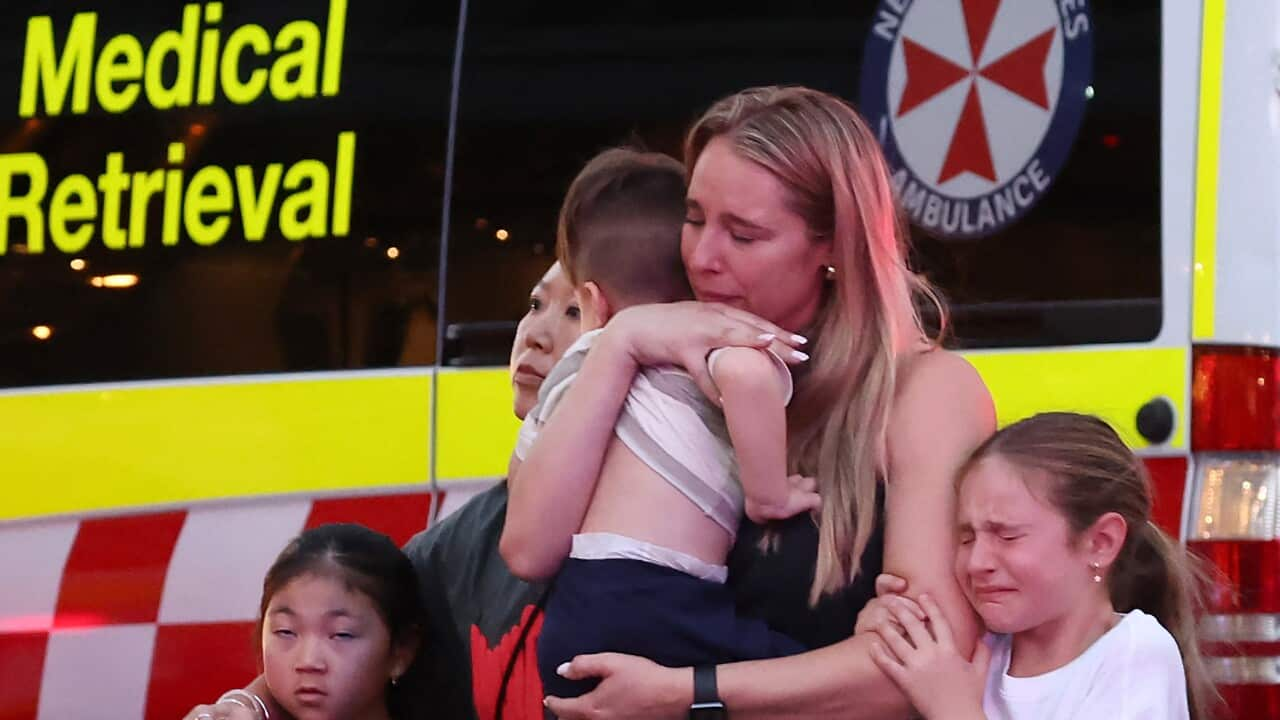As the country marks 12 years since the National Apology to Indigenous Australians on Thursday, one survivor of the Stolen Generations says the "journey of healing" is far from over.
On February 13, 2008, then-Prime Minister Kevin Rudd apologised to Indigenous Australians for the "profound grief, suffering and loss" caused by past government policies, especially the removal of children from their families.
Eighty-year-old Lorraine Peeters was in the House of Representatives that day and presented Mr Rudd with a glass coolamon - a traditional vessel for carrying children - after the apology.
"[I thought] at last, someone had said sorry," she told SBS News on Tuesday.
At last, someone had said sorry. Lorraine Peeters
Ms Peeters was removed from her community in Brewarrina, NSW when she was four and taken to an institution to be "trained up for white families to be a domestic".
"It should never have happened," she said. Reflecting on the 12-year anniversary, Ms Peeters said there is still "collective trauma" being experienced by members of the Stolen Generations and many other Indigenous people.
Reflecting on the 12-year anniversary, Ms Peeters said there is still "collective trauma" being experienced by members of the Stolen Generations and many other Indigenous people.

Lorraine Peeters presents Kevin Rudd with the coolamon. Source: The Australian Women's Weekly
"I spend every waking moment thinking about how can we move through this, how can we heal our mob quicker than we're doing." Ms Peeters said Australians who work with members of the Stolen Generations needed to be better trained in the invisible trauma they are likely suffering.
Ms Peeters said Australians who work with members of the Stolen Generations needed to be better trained in the invisible trauma they are likely suffering.

Then-Prime Minister Kevin Rudd on February 13, 2008. Source: Getty
And she said all Australians should reckon with the fact that many other Indigenous people are experiencing intergenerational trauma as a result of the Stolen Generations.
"It's passed down to their children. It keeps going. Research shows that trauma starts in the womb … [Yet] trauma is not taught in this country. Who understands trauma in this country?" she said.
"It's all 'she'll be right mate, get over it'."
Ms Peeters started a healing initiative called the Marumali Program in 2000 and has since supported many other survivors of the Stolen Generations.
"Also, healing will never happen on a mainstream level unless everyone knows the story, knows the history ... You can't heal someone if you don't know their story," she said.
"Learn the history. Own the history. Accept the history."
According to material from the Healing Foundation, it's estimated that up to one in three Indigenous children were taken from their families between 1910 and the 1970s.
"These children were forcibly removed from their families and communities through race-based policies set up by both state and federal governments. They were either put into homes, adopted or fostered out to non-Indigenous families," it says.
'Finally shut this gap'
SBS News contacted Mr Rudd in the leadup to the anniversary with questions about progress on reconciliation and the Closing the Gap strategy, which aims to reduce disadvantage among Indigenous people.
But just two of the seven Closing the Gap targets are on track to be met, .
"The Closing the Gap goals are clear. To give effect to those goals, we negotiated a $4.6 billion Closing the Gap strategy with state and territory governments," Mr Rudd told SBS News.
"Since 2013, the Coalition government has stepped back from their leadership role in the Closing the Gap program," he said.
"It now needs to work constructively with the National Coalition of Aboriginal and Torres Strait Islander Peak Organisations through COAG to refresh the targets and provide targeted funding so that we can finally shut this gap." SBS News contacted Minister for Indigenous Australians Ken Wyatt for comment but has not received a reply.
SBS News contacted Minister for Indigenous Australians Ken Wyatt for comment but has not received a reply.

Kevin Rudd at Parliament House last year. Source: AAP
A historic moment
Mr Rudd delivered the apology on February 13, 2008, as crowds watched outside Parliament and at live sites across the country.
"For the pain, suffering and hurt of these Stolen Generations, their descendants and for their families left behind, we say sorry," he said.
"The time has now come for the nation to turn a new page in Australia's history by righting the wrongs of the past and so moving forward with confidence to the future." Mr Rudd's apology has its origins in the 1997 Bringing Them Home report.
Mr Rudd's apology has its origins in the 1997 Bringing Them Home report.

Thousands of people watched the apology live in Melbourne in 2008. Source: Getty
The report was the culmination of an inquiry into the Stolen Generations which made 54 recommendations, including that state and federal governments issue an apology.
All states and territories did so but then-Prime Minister John Howard refused to apologise, instead issuing a statement of "deep and sincere regret". "The Australian people know that injustices occurred. The Australian people know that wrongs were committed," Mr Howard said in 1999.
"The Australian people know that injustices occurred. The Australian people know that wrongs were committed," Mr Howard said in 1999.

Then-Prime Minister John Howard in 2007. Source: Getty
"But for the overwhelming majority of the current generations of Australians, there was no personal involvement of them or of their parents. To say to them that they are personally responsible and that they should feel a sense of shame about those events is to visit upon them an unreasonable penalty and an injustice," he said.
"The Australian people do not want to embroil themselves in an exercise of shame and guilt." But Mr Howard's position resulted in significant opposition, including from some in his own party.
But Mr Howard's position resulted in significant opposition, including from some in his own party.

The word "sorry" written in the sky above the Sydney Opera House in 2000. Source: AAP
Mr Rudd went on to beat Mr Howard at the 2007 election and made the apology the first action of the first full sitting day of the 42nd Parliament of Australia.










